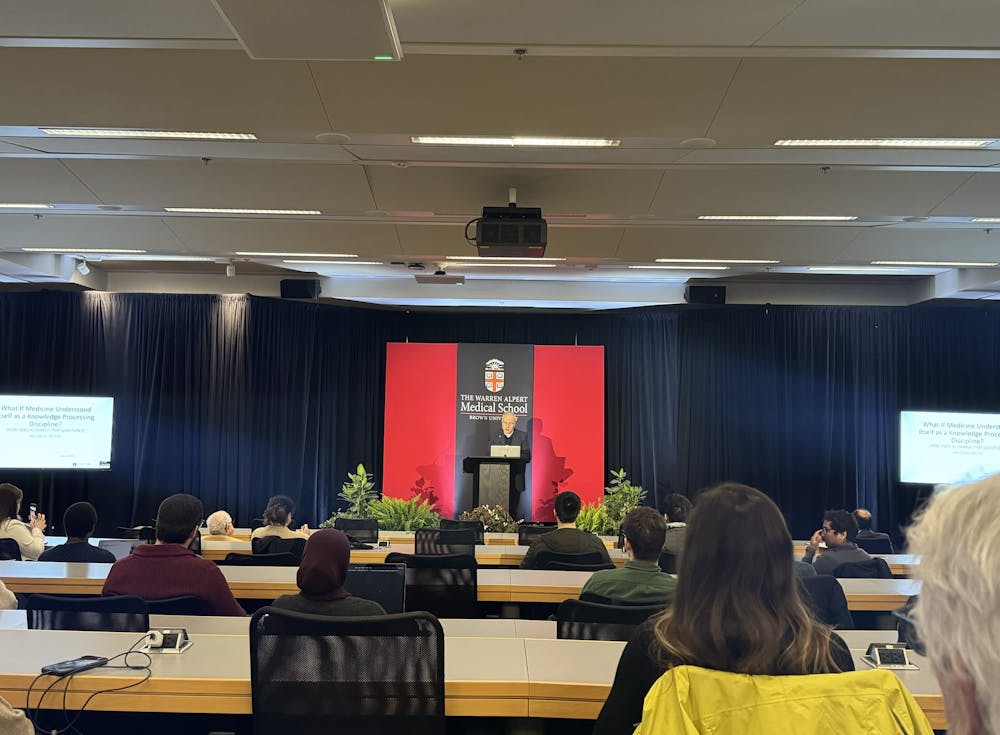On Wednesday, Isaac Kohane ’81 P’25, the inaugural chair of Harvard’s Department of Biomedical Informatics, discussed how artificial intelligence could use big data to expand the field of biomedicine at a Wednesday lecture hosted by the Warren Alpert Medical School.
Kohane spoke to The Herald about how his time at Brown — especially the open curriculum — helped him venture into the field of bioinformatics.
“Even though I was a biology major, because of Brown’s flexible curriculum, I was able to take a lot of computer science courses,” he said. “I took a course in population genetics at Brown, led by James Kidwell, (and) I actually published my first paper in the medical literature with him as a result of my honors thesis.”
During the lecture, he emphasized the role of AI and its ability to transform medicine.
“Right now, our healthcare system is under strain, and we don't have enough primary care doctors,” he said. “By taking people who have both the right attitude and some of the training, such as nurse practitioners and physician assistants, and (giving) them augmentation using AI, we can make them give care at the level we want them to.”
With recent advancements of AI in medicine, primary care doctors would act more like “quarterbacks” who put AI into use and connect it with patients, Kohane said
“AI is more like a utility that helps manage patients,” said Constantine Gatsonis, director of the Center for Statistical Sciences at Brown. “Instead of having a librarian, you have a super-librarian now.”
Artificial intelligence may also help healthcare professionals better diagnose and treat patients.
Kohane collected these thoughts in “The AI Revolution in Medicine: GPT-4 and Beyond,” a 2023 book he published with fellow experts Peter Lee and Carey Goldberg. The book details the potential impacts of AI on medicine and the future of GPT-4 as the technology continues to develop.
Kohane recommends students “take a course that involves generative AI, because almost any part of other human endeavors is going to be working with it.”
He also encouraged students to support the integration of AI into medicine throughout their careers and education.
For those entering the fields of “AI or medicine, pick one aspect of policies, whether it be bias, disparities or health literacy,” he said. Focusing on a broadly applicable field allows the student to “have a conversation with the entirety of society, and not just with the professionals that will be working closely with you.”
Justin Rhee ’23 MD ’27, a first year student at Warren Alpert Medical School who attended the lecture, said that the event was “insightful” and “eye-opening” to what the future of AI and medicine might look like.
Like many lecture attendees, Kohane is keeping an eye on the future of AI in medicine. He calls himself both an investigator and spectator in bioinformatics as he aspires to advance the field and fully integrate AI into medicine.

Claire Song is a university news and science & research editor for The Herald. She is a sophomore from California studying Applied Math-Biology. She likes to drink boba in her free time.





